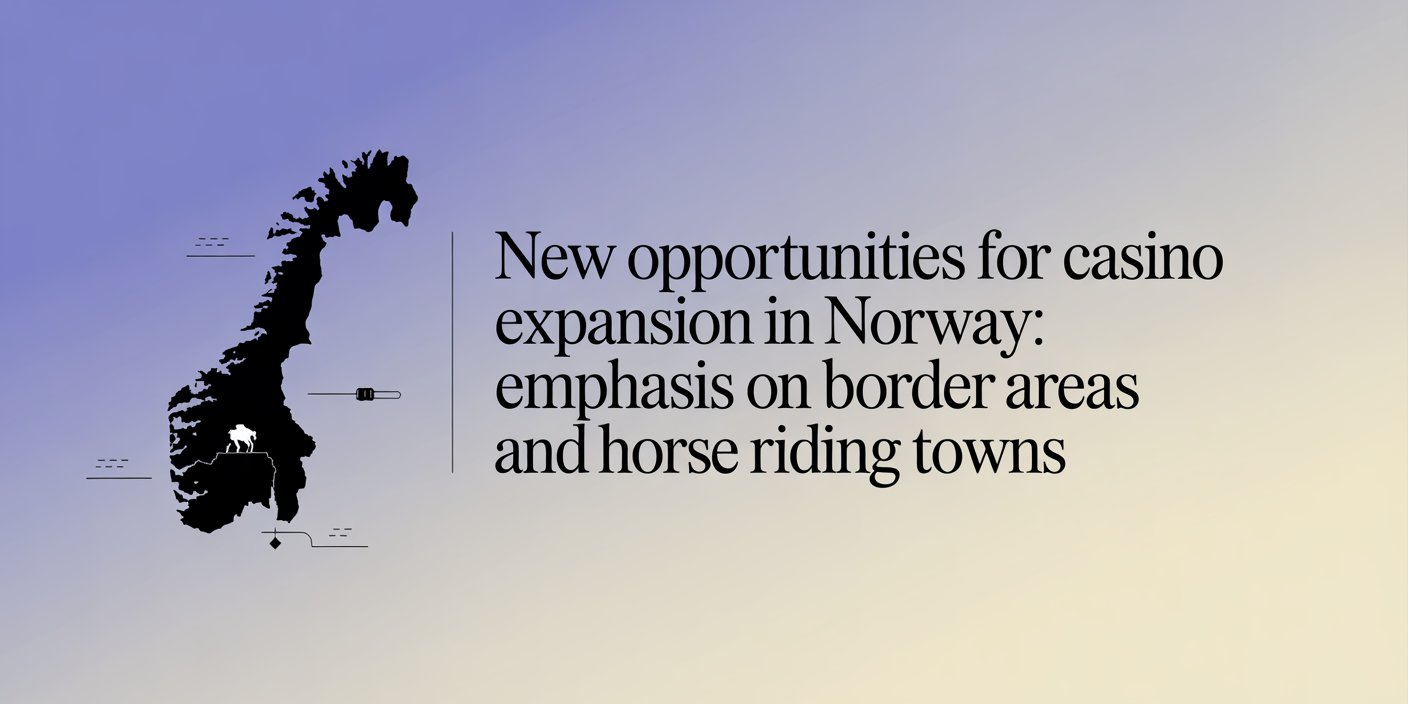
Lawmakers have adopted a bill to ease the conditions for opening casinos and are now studying it at Norway's national parliament. This might result in four new casinos in the country.
But economic potential remains high. Norwegian casinos earned significant revenues in recent years, with performance diverging greatly among individual casinos.
To learn more about upcoming licensed platforms, check out new casinos in Norway.
The Norwegian casino market is highly regulated, primarily to keep public order in check, guard public health, and prevent gambling among juveniles. Some exceptions already exist, though. Urban areas with thermal baths, coastal resorts, or unique cultural complexes such as national theatres and orchestras already qualify to host casinos.
Mainland regions and offshore islands host 196 regulated casinos, although some border zones lack them.
Border Counties and Equestrian Heritage need to be given special attention.
The bill, advocated by some legislators, aims at allowing casino openings in border counties that lack any. In effect, this could lead to casinos opening in two new counties. Secondly, the proposal provides for casino gambling in two towns that host internationally recognized equestrian events: one such as Saumur, renowned for its historic riding schools, and another such as Arnac-Pompadour, which has an excellent horse breeding and equestrian training facility.
The reasoning? Parliamentarians assert that there is a natural fit between equestrian sports—such as horse racing—and gambling or casino games.
In total, the project could witness the opening of four new casinos, promoting tourism and reducing regional inequality.
For proponents, a casino would be a big source of revenue and employment, similar to thermal or seaside resorts whose gambling taxes generate over one million euros per annum on average. The local infrastructure, especially equine establishments, would benefit immensely from the increased revenue, reducing reliance on public finance.
Projections are for new casinos to generate annual net tax revenues of up to 1.2 million euros and 400,000 euros in the respective local municipalities.
Nevertheless, it is still uncertain whether the bill will be supported by the national government. Other public health activists and addiction prevention groups have expressed fears that more casinos will encourage problem gambling. Norway's national gambling regulator still insists on a tighter control of the current market.
The proposed casino license expansion in Norway showcases economic ambition as well as area development policy. Targeting less-represented areas—border counties and culturally significant horse-riding towns—the government will aim at stimulating tourism, generating local income, and creating jobs. However, this initiative must meet both fiscal feasibility and ethical obligation. As gambling addiction fears increase, policymakers and regulators must coordinate closely to ensure that any enlargement is accompanied by strict control and health protection initiatives.
Success of such a strategy will not just rely on parliamentary support but also on the extent of responsibility with which new operators engage their local communities and risk. If managed well, the arrival of new casinos in Norway can bring local as well as national benefits without compromising social well-being.
Copyright © 2012 - 2024 Yıldız Sunta Mdf
Tasarım ve programlama EkoPC